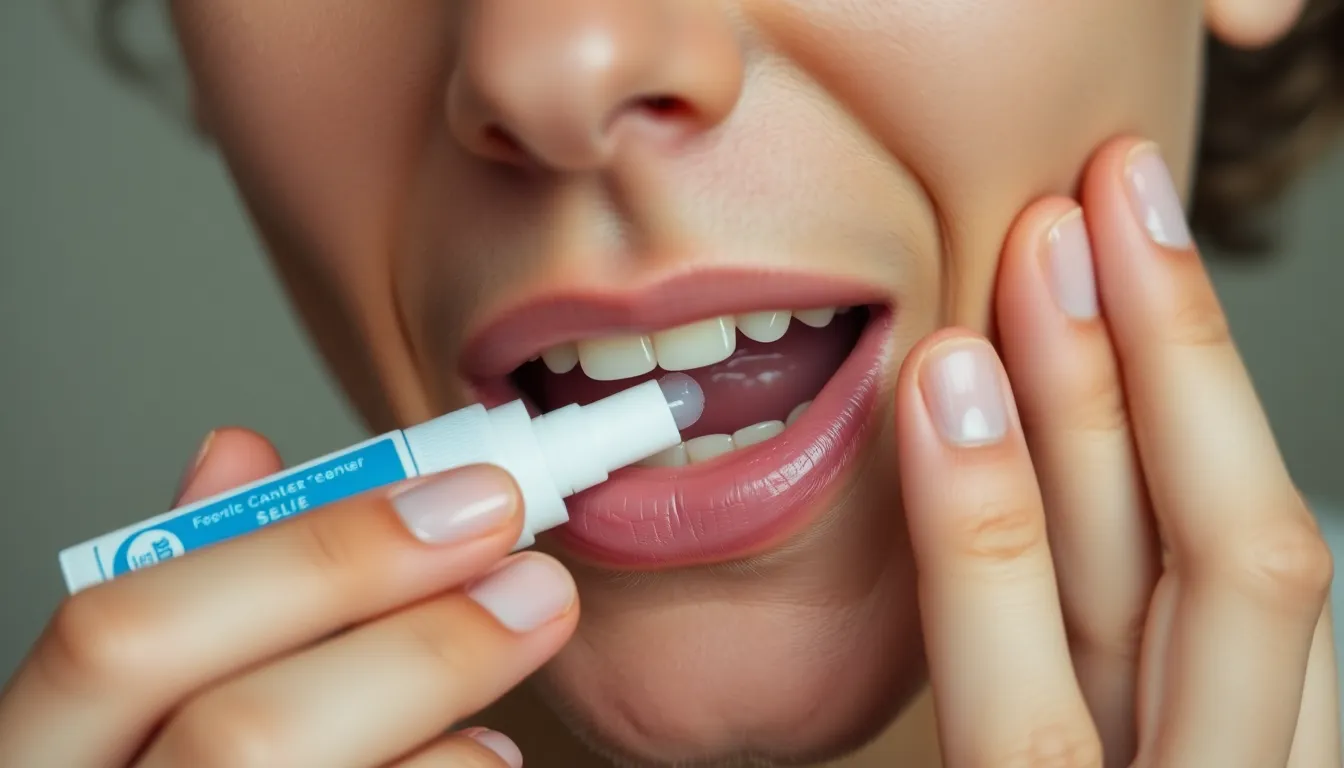Canker sores and cold sores might sound like a dynamic duo from a bad sitcom, but in reality, they couldn’t be more different. One’s a sneaky little ulcer that pops up inside your mouth, while the other’s an unwelcome guest that sets up camp on your lips. They both bring the drama, but they don’t belong in the same episode of your life.
Table of Contents
ToggleUnderstanding Canker Sores and Cold Sores
Canker sores and cold sores share similar names but are distinct conditions. Each arises in different areas of the mouth, leading to varying symptoms and causes.
Differences Between Canker Sores and Cold Sores
Canker sores occur inside the mouth, often on the tongue, gums, or inner cheeks. Cold sores, also known as fever blisters, appear on the lips or around the mouth. Canker sores tend to be painful and can affect eating and speaking. Cold sores stem from the herpes simplex virus, while canker sores are not contagious. Understanding these differences helps in identifying the appropriate treatment for each condition.
Common Symptoms and Causes
Common symptoms of canker sores include painful ulcers, a burning sensation, and difficulty chewing. Triggers can include stress, hormonal changes, and certain foods such as citrus or spicy items. Cold sores manifest as blister-like lesions, often preceded by tingling or itching. The cold sore virus can activate due to stress, illness, or sunlight exposure. Recognizing symptoms and causes assists in managing discomfort effectively.
Treatment Options for Canker Sores

Various treatment options exist for canker sores, aimed at relieving pain and promoting healing. Knowing the right approach can significantly enhance comfort.
Over-the-Counter Remedies
Numerous over-the-counter products provide relief for canker sores. Pain relief gels offer localized numbing effects, reducing discomfort during meals. Antiseptic mouth rinses help prevent infection and promote healing. Oral patch treatments create a protective barrier over the sore, facilitating a more comfortable eating experience. Some products contain ingredients like benzocaine or hydrogen peroxide, which can speed up recovery. Consistently following instructions on these medications maximizes their effectiveness.
Home Remedies
Simple home remedies can complement over-the-counter treatments for canker sores. Saltwater rinses work well to reduce inflammation and promote healing, when used several times a day. Baking soda paste, applied directly to the sore, neutralizes acidity and soothes irritation effectively. Applying aloe vera gel helps reduce inflammation and offers hydrating properties, enhancing comfort. Honey serves as a natural anti-inflammatory and can promote healing, especially when applied regularly. Keeping the mouth clean and hydrated plays a crucial role in managing canker sore symptoms.
Treatment Options for Cold Sores
Cold sores can be managed effectively with various treatment options. These options range from medications to lifestyle changes.
Prescription Medications
Topical antiviral creams, such as acyclovir and penciclovir, reduce healing time and alleviate symptoms. Oral antiviral medications may also be prescribed for severe outbreaks, particularly for individuals with recurrent cold sores. These treatments help minimize virus replication, enabling faster recovery. Additionally, corticosteroids may be recommended to reduce inflammation and swelling in more severe cases. Patients experiencing frequent or painful outbreaks should consult a healthcare professional for appropriate prescriptions.
Lifestyle Adjustments
Incorporating lifestyle changes can significantly impact the frequency and severity of cold sores. Stress management techniques like yoga and meditation foster a calmer mindset. Adequate hydration supports the immune system, enhancing its ability to fight off viruses. Sun protection through lip balms with SPF prevents sun-induced outbreaks. Maintaining a healthy diet, rich in vitamins and minerals, helps boost overall immunity. Regular sleep patterns also play a crucial role in maintaining personal well-being. Each adjustment contributes to effective cold sore management.
Prevention Strategies
Preventing canker sores and cold sores involves specific dietary choices and maintaining good oral hygiene.
Dietary Recommendations
Incorporating a balanced diet helps reduce the risk of canker sores. Choosing foods rich in vitamins B12, C, and iron supports oral health. Avoiding acidic foods like citrus fruits can prevent irritation. Some individuals find spicy foods trigger outbreaks, so moderation is key. Staying hydrated also contributes to overall mouth health, which can deter sores from developing.
Oral Hygiene Practices
Maintaining consistent oral hygiene plays a crucial role in prevention. Brushing teeth twice daily and using a soft-bristled toothbrush minimizes gum irritation. Mouth rinses with antiseptic properties can reduce bacterial buildup. Flossing regularly removes food particles that cause irritation. Avoiding dental products containing sodium lauryl sulfate may decrease the likelihood of developing canker sores.
Understanding the differences between canker sores and cold sores is essential for effective management. While both conditions can cause discomfort, their causes and locations are distinct. Canker sores are non-contagious ulcers that can often be managed with home remedies and over-the-counter treatments. Cold sores, on the other hand, are contagious and may require antiviral medications for proper care.
By adopting good oral hygiene practices and making mindful dietary choices, individuals can reduce the frequency of these painful outbreaks. Recognizing symptoms early and knowing the appropriate treatment options can lead to quicker relief and improved oral health. Taking proactive steps can make a significant difference in managing these common oral conditions.





